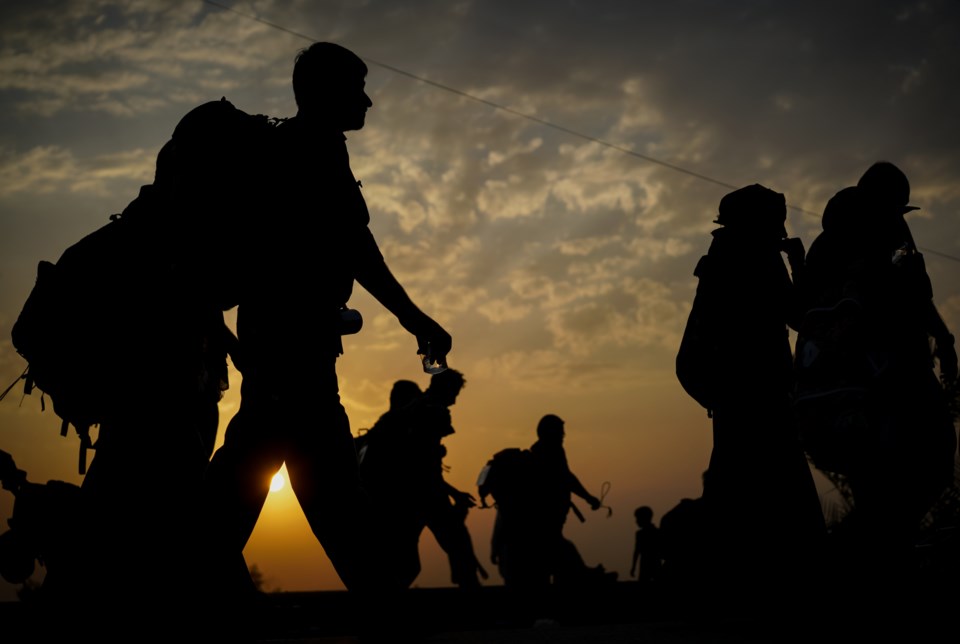Last week, advocates commended the B.C. government for ending its immigration detention agreement with the Canada Border Services Agency (CBSA).
"This decision follows extensive advocacy that brought to light the detention regime violates international human rights law, which has long held that immigration detention should only be used as a measure of last resort," said Mara Selanders, staff counsel at BC Civil Liberation Association (BCCLA).
The B.C. government announced July 21 that BC Corrections is giving the CBSA 12 months to stop practicing immigration detention. And while this decision is an important one, advocates hope that immigration detention will cease to exist in B.C., and inspire other provinces to act on it.
"Given the government's finding that the arrangement with CBSA did not align with its commitment to upholding human rights standards, it is critical that it ends immediately after the 12-month notice period and terminates any extension of this notice," said Julia Sande, human rights law and policy campaigner for Amnesty International.
"We urge other provinces to cancel the immigration detention agreements with CBSA and the federal government to get on the path to abolishing immigration detention."
From 2016 to 2021, Canada detained . Although immigration detainees are held under immigration law, many detainees experience the nation's most restrictive confinement conditions like maximum-security provincial jails.
"Under the provincial agreement, detainees are regularly handcuffed, shackled, and held with jails and solitary confinement," said Selanders.
Since 2015, the United Nations Human Rights Committee has condemned immigration detention, stating it should be stopped indefinitely.
Why immigration detention violates human rights
Advocacy organizations aren't the only groups who are praising the B.C. government for ending their agreement with the CBSA.
When human rights activist Abdelrahman Elmady left Egypt, he came to Canada seeking refugee protection. But instead of protection, he spent his first night in Vancouver in jail.
Elmady was not charged with anything but he was nonetheless shackled and handcuffed. His belongings were ceased, including the rechargeable batteries for his hearing aids he depends on for his hearing disability.
"Within hours of arriving in Canada, I was in jail. I was confused and scared. I had to try navigating through jail with the language barrier and I could not hear anyone or anything. I didn't know why I was arrested and detained. I didn't know why I was in jail," said Elmady.
For the next two months, Elmady spent his time in three jails, with no knowledge of when he would be released.
Eventually, Elmady was able to use his hearing aid but only for a limited amount of time.
"I spent most of my time in jail in silence because I was only provided with one hearing aid battery at a time. And only for CBSA meetings and hearings. The batteries would run out after a few hours," he said.
Today, he lives in Vancouver and works to fight for human rights.
When B.C. made its announcement to end immigration detention, Elmady said it felt like a major achievement.
"I hope that other provinces will follow B.C.'s example, and that other people coming to this country will receive a more humane introduction."
Who are immigration detainees?
In June, the B.C. government to respect the province's human rights obligations by ending immigration detention, and instead "fund community-based organizations that provide tailored and compassionate support, including rights-respecting alternatives to detention."
According to the Immigration and Refugee Protection Regulations, individuals can be detained for their criminal history, for being a "danger to the public," or not being able to confirm their identities. While some non-citizens are detained for criminal history, most are not.
"One of CBSA's most consequential powers within the immigration system is that the agency has full authority over where people are detained," said Samer Muscati, associate director of the disability rights division at Human Rights Watch.
"Our research found that according to CBSA policy, the agency may incarcerate people with mental health conditions in provincial jails, specifically because of their mental health condition. This is clearly discriminatory. Instead of receiving vital supports, people with psycho-social disabilities are subjected to disproportionately course of treatment and immigration detention.
"There is a rich fabric of community-based organizations that provide a tailor and compassionate support services to newcomers. But migrant and refugee claimants cannot access the services they are in jail. Instead, many people are already traumatized before they can even begin their lives in Canada," said Muscati.




